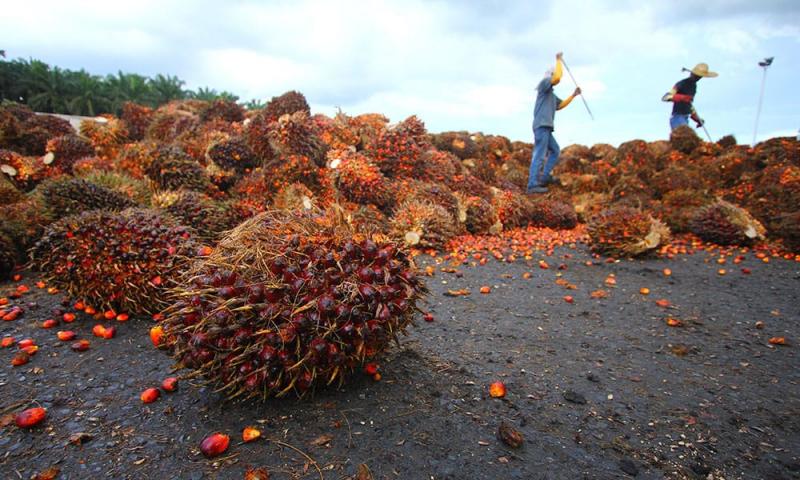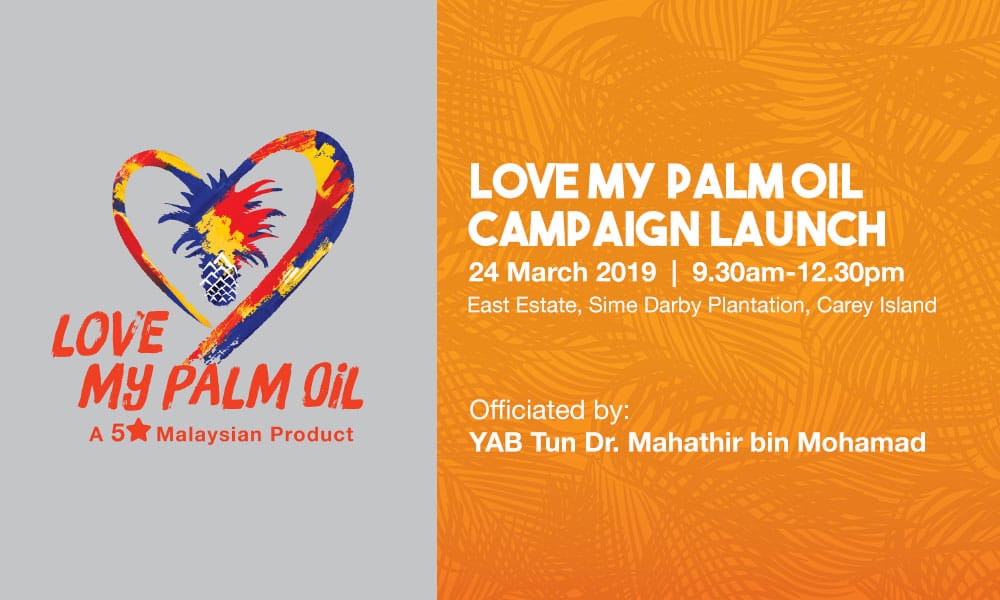Getting to know our palm oil
Safeguarding the sustainability of our oil palm industry with a down-to-earth approach
“Elaeis Guineensis” – Have you got a clue what it is? No worries. No one really bothers about scientific names. They just sound difficult or confusing. Now let me tone it down a little bit for you. What about tenera, dura or pisifera? You are still lost, aren’t you?
Little do you know that your daily life actually revolves around those beautiful names. When you fry an egg, the cooking oil in your pan is most probably made from the fruit of this species. From the margarine you spread on your bread to the soap you use to wash off the dirt and the shampoo you lather on your hair, the goodness of this very versatile “tree of life” is self-evident.
You must have guessed it right by now. Yup, it’s palm oil, the most widely consumed vegetable oil on the planet. On many occasions, it has been a favourite study subject for its health benefits. The findings make its skeptics envious. Palm oil is an excellent cooking oil for being heat-resistant as well as naturally trans-fat free and cholesterol free [1][2].
How it began
Wikipedia reports that ‘human use of oil palms may date as far back as 5,000 years in West Africa” - the birthplace of oil palm trees. Frenchman Henri Fauconnier naturalised oil palm on Malaysian soil back in 1917, in Tennamaram Estate, Batang Berjuntai (now known as Bestari Jaya), Selangor. That marked the beginning of commercial oil palm plantation in Malaysia.
In 1956, the year Federal Land Development Authority (FELDA) was born and a year before our independence, oil palm was identified as the best alternative crop to rubber and that set off a new planting momentum of all scales. The FELDA Taib Andak scheme, introduced in 1961, proved to be a huge success in eradicating rural poverty. Oil palm cultivation among smallholders was rising phenomenally in the following decades.
In 2008, Malaysia became the first country to produce and export Certified Sustainable Palm Oil (CSPO). We led the way once again in 2013, introducing the Malaysian Sustainable Palm Oil (MSPO) standards, a certification made mandatory for our growers by the end of 2019.
With over a century of commercial cultivation history and experience as well as the ever-improving expertise, oil palm has successfully put Malaysia on the world map for its extensive household and industrial applications.
Tremendous economic value
An industry report published by the Malaysian Palm Oil Council (MPOC) states that “Malaysia currently accounts for 39 % of world palm oil production and 44% of world exports [3]”. Statistics released by Department of Statistics, Malaysia show that “the agriculture sector contributed 8.2 per cent or RM96.0 billion to the Gross Domestic Product (GDP) in 2017. Oil palm was a major contributor to the GDP of agriculture sector at 46.6 per cent [4]”.
The oil palm industry has created thousands of job opportunities across both the peninsula and East Malaysia. The economic benefits of this sustainable crop impact all walks of life from upstream to downstream. Oil palm helps feed more than three billion people in over 150 countries worldwide, after all [5].
Unfortunately, such a noble mission is greeted with the disputable and misleading anti-palm oil campaigns by western nations, whose rivalling alternative crops are known to have a lower yield per hectare.
“Love MY Palm Oil” campaign
In an effort to counter such attacks, the Ministry of Primary Industries has joined forces with MPOC to kick off a year-long “Love MY Palm Oil” campaign earlier this year, calling for solidarity to protect the livelihood of all stakeholders.
According to its minister Teresa Kok, the mission-critical campaign, which covers five pillars – Love My People, Love My Food, Love My Country, Love My Planet and Love My Health, aims to instil national pride and greater appreciation for Malaysian palm oil, focusing on socio-economic importance, health, nutrition and food and non-food applications. A series of events and activities have been lined up for the entire year, targeting industry members, professionals, students, the academia and general public.
The ministry is also on a mission to establish palm oil ambassador clubs on campuses while championing the Edupalm forum. Other exciting activities include palm oil cooking competition and educational palm tree planting exercise.
Official launch
The much-anticipated official launch of Love MY Palm Oil campaign will be officiated by Prime Minister Tun Dr. Mahathir Mohamad on 24 March 2019 (9.30am-12.30pm) at East Estate, Sime Darby Plantation, Carey Island, Selangor.
More info at https://lovemypalmoil.com.my/
RM12.50 / month
- Unlimited access to award-winning journalism
- Comment and share your opinions on all our articles
- Gift interesting stories to your friends
- Tax deductable

